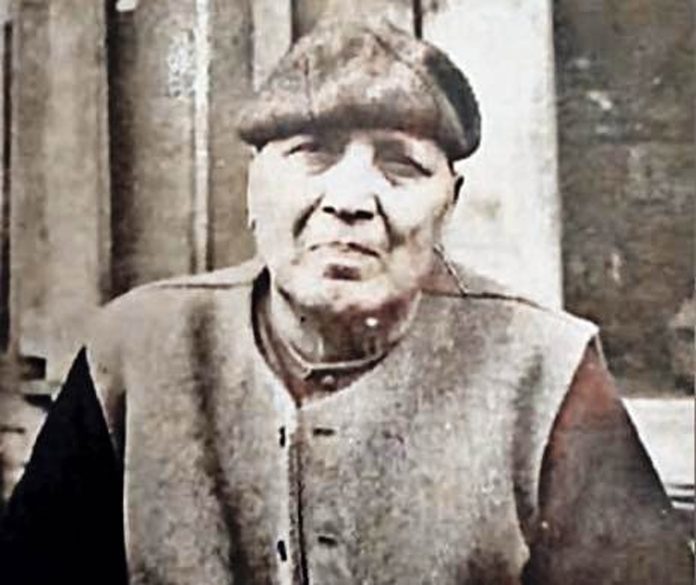Avtar Nehru
December 18 is the 38th death anniversary of Pandit Kashyap Bandhu, a towering personality of yesteryears, still remembered for his radical social reforms that he initiated in 1930s decade within Kashmiri Pandit (KP) society that has earned him the title of ‘Raja Ram Mohan Roy of Kashmir’. His popular image of a social reformer, however, has overshadowed his stature of being a great political leader ever produced by the KP community.
Perhaps the only political prisoner from the community, Kashyap Bandhu, in several ways has laid the foundation of KP activism in Kashmir that has served as basis for whatsoever socio-cultural structural apparatus the community has had over the past 90 years. When the KP community on the whole was seen as pro-establishment in the Kashmir valley during Dogra rule and lacked a voice when rattled by 1931 loot and riots, it was he, who propped up a youth brigade to challenge the lethargy and sense of helplessness within KP society to give it a hope.
He did it in the most unconventional way by setting off the social reforms within the community that initially attracted a lot of badmouthing and stiff rejection. Kashyap Bandhu, who was an Arya Samaji by training and had personal association with Shaheed Bhagat Singh besides the knowledge of the working of Hindustan Socialist Republican Association in Lahore, did apply some of revolutionary tactics in Srinagar after returning to Kashmir after several years of self-imposed exile. No wonder, when the turban was the most respectable and essential attire for KP men, he persuaded his gang to go bareheaded. He launched a rebellious like campaign against age-old attire of women just to attract attention to their sufferings and need for their emancipation. Ridiculed and abused, he turned the youth power on the old norms and restored the lost political ingenuity to KPs after centuries with his small and big successes.
He was perhaps very clear in his mind that unless KP community is freed from the shackles of past and traditions and society is reformed from within, the community will not have the will to survive in the hostile and changing political environment that prevailed in those times. KashyapBandhu by incepting the first mouthpiece of the KPs in the form of Martand newspaper gave KPs an engaging and networking platform to express and get to know one another besides giving it a broadcast public voice teeth.
Having dealt with the community refinement and awakening to some degree, Kashyap Bandhu and his confidants amplified the community issues and registered their political voice through protests and agitations. In doing so, he also made a strong pitch for rights of Kashmiris and created a space for inclusive political struggle and a common cause with all sections of Kashmiri people, particularly Muslims. Sheikh Mohd Abdullah’s Muslim Conference, which was concentrated on Muslims only was forced to do a rethink and due to presence of broadminded nationalists on both sides, Muslim Conference changed to National Conference. It was a watershed political development in Kashmir that in reality shaped the destiny of present Jammu and Kashmir along with residual resentment from both extremes.
Not everyone was obviously happy with Kashyap Bandhu and Jiyalal Kilam or Sheikh Abdullah for this amalgamation as a lot was invested in religious identity-based activism and solutions that it offered. Indian National Congress, which was battling communalism and separatism of the Muslim League, did stand behind Abdullah and his party, which further fanned this divide. Nevertheless, Kashyap Bandhuand Mirza Afzal Beg worked closely to turn National Conference into a secular and progressive political force that helped Abdullah emerge as a tall and popular leader in the subcontinent.
Bandhuji as he was fondly called, however, missed the cabinet berth in the provisional government led by Abdullah probably in the intra-grouping politics of the party. But, he didn’t lose any standing or importance as an important leader of the times and remained loyal to the party. He was made Director General Rural Development and was its defacto boss without any political interference. It is said he didn’t allow Mufti Mohd Syed, a minister in Sadiq Government to visit Sonawari to prove his independent working.
KashyapBandhu, who served about six years in jail in connection with Kashmir Conspiracy Case in which Sheikh Abdullah was dismissed as Prime Minister and jailed in 1953, was one of the key authors of the Naya Kashmir manifesto of the National Conference, the blueprint for making Jammu & Kashmir a welfare state and abolishing regressive and the oppressive rules of the time that also contained land reforms. These land reforms caused a lot of heartburn among KPs who were at the receiving end after having to part with landholdings with tillers. Detractors of Bandhuji seized this opportunity to cut down him to size and marginalized him from KP issues.
KashyapBandhu, who as the Emergency Relief and Rehabilitation officer, had rendered exemplary services to bring back the lost confidence and faith of KPs in north Kashmir in the aftermath of 1947 tribal raid (supported by Pakistan), probably took this criticism to his heart and retired from active politics. But as a mentor and wise elderly, he was never out of reach as he continued to inspire, guide and reflect on the wellbeing of KPs till his last.
Before he is completely erased from the public memory, let’s remember he was shining star that may have faded away but has left a lot of wisdom and examples to tackle the current crisis faced by KP community.
Trending Now
E-Paper


